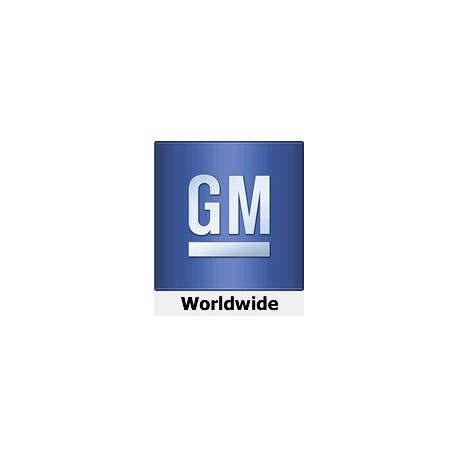 View larger
View larger GMW14400
M00010566
New product
GMW14400 12th Edition, June 2019 Pre-Coated or Uncoated Heat-Treatable Sheet Steel
In stock
More info
Description / Abstract: GMW14400, 12th Edition, June 2019 - Pre-Coated or Uncoated Heat-Treatable Sheet Steel
This specification covers the requirements for heat-treatable boron steel used in the manufacture of structural parts to manage very high tensile loads without significant deformation as required in safety and occupant protection. This material is heat treated, formed and simultaneously quenched in a water-cooled die in a process referred to as hot stamping, hot press forming or press hardening. Material produced by this process is generally referred to as Press Hardened Steel (PHS). This process produces parts with varied microstructures consisting of combinations of tempered martensite and non-martensitic transformation products. PHS parts may be specified to contain soft zones, which are lower strength than the surrounding metal and may contain reduced amounts of martensite relative to the surrounding metal.
Material Description. The material designation is defined by the GMW material specification number, material category (Sheet or Tubular product), steel product type, grade, and finish type. The substrates used in these applications may be cold rolled or hot rolled, but the product type is designated as heat treated (HT) or hot stamped (HS), as appropriate. The steel grades will correspond to the chemical and mechanical requirements as shown in Appendix A, Table A1 through Table A5. Only the surface quality designation of U, representing an unexposed application, shall be used unless otherwise approved by Materials Engineering. The preceding descriptive items are used together to form the coding system. Examples of the coding system for engineering part drawings, electronic math data files and/or manufacturing engineering documents are shown in Section 8.
Resistance Welded Mechanical Tubing. Tubes supplied to this specification are formed from a steel strip to the desired shape and dimension, electrical resistance welded into a tube, and then heat treated to achieve the final mechanical property requirements.
Induction Heat Treated Steel. Part sections formed with this operation and supplied under this standard shall be made by stamping in the as-rolled condition. The raw stamping can be selectively induction hardened to achieve the required strength requirements. Al-Si, Zn, Zn-Fe, or Zn-Ni pre-coated products shall not be used in these applications.
Hot Stamped Die Quenched Steel. Parts shall be made by austenitizing a pre-cut blank, hot stamping the heated blank and rapid cooling (quenching) the stamped part in the die or via water quenching. Press hardened steel (PHS) can be formed by either direct or indirect stamping processes. The direct process is considered as main-stream for all usages (except tubes).
Note: The indirect stamping process is not a globally available manufacturing process and must not be used (or parts designed to require its use) without the prior authorization of the GM Global Functional Lead (GFL). Use of the indirect process implies that affected parts cannot be used globally without driving excessive cost to ship stamped parts globally. Exception: For tubular products such as axle tubes, the indirect process is globally available and can be used without prior approval.
Uncoated Products. Parts formed with uncoated steel and supplied under this standard shall be subsequently cleaned (also referred to as “blasting”) to mechanically remove oxide from the surface as described in 3.3.3.2.
Pre-Coated Products. Parts formed with a hot stamping operation may also utilize pre-coated steels furnished according to this specification to eliminate the need for cleaning/blasting and/or to improve corrosion performance.
Aluminum-Silicon (Al-Si) Pre-Coatings. Al-Si coated parts shall not be cold-stamped prior to the hot stamping operation, but roll-forming or variable thickness rolling operations may be allowable if the coating is not significantly damaged and approved by GM Materials Engineering. As noted in GMW15619, variable thickness rolled blanks are restricted to non-corrosion-critical areas, and use in corrosion critical areas must be approved by GM Materials Engineering.
Cleaning/blasting is not permitted for Al-Si pre-coated parts to prevent damage of the coating.
Zinc Based Pre-Coatings. The preferred manufacturing process for zinc or zinc alloy coated parts is direct hot stamping. Parts shall be cleaned (blasted) to remove any oxide layer from the surface as described in 3.3.3.2.
Material Callouts. The list of material and coating designations shown in Table 1 are the only approved material callouts that can be released unless GM Materials Engineering and the appropriate Global Subsystem Leadership Team approves.


